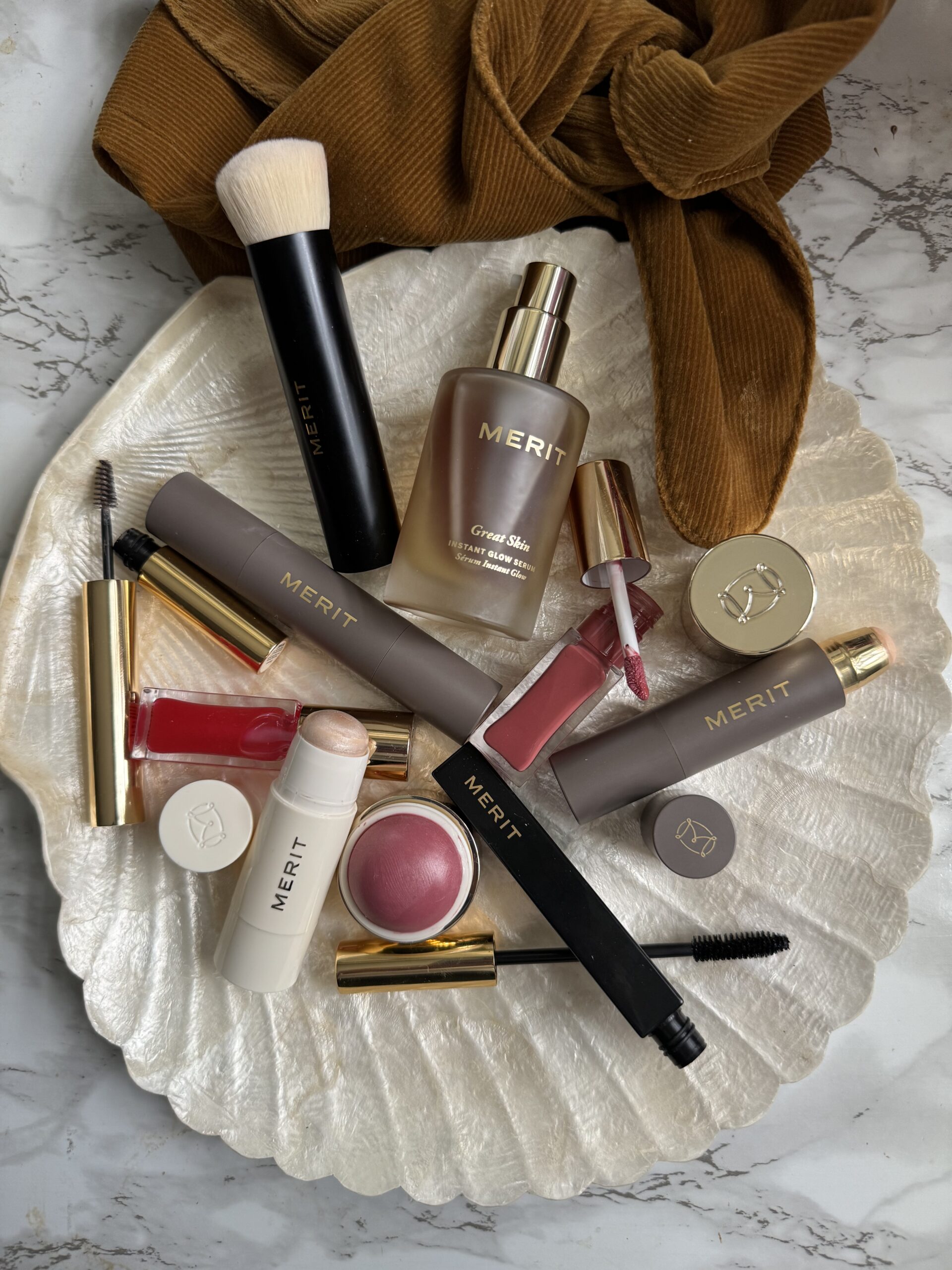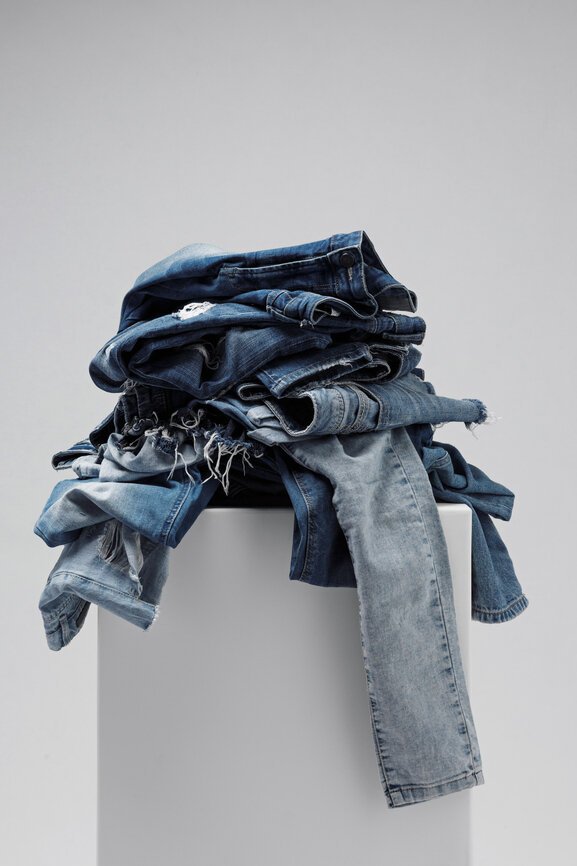
My Review Of NuFACE’s At-Home Microcurrent Facial Tool
Summary: I tried the NuFACE Mini+ to target my concerns with a sagging jawline and overall skin contouring. I used the tool for 30 days and saw some noticeable results. Overall, this tool is worth the investment. You might even save money in the long run if you love fancy facials (like I do).
PROS
- The app is super intuitive and guides you through every treatment. It even has calming background music, so you really feel like you’re in a spa!
- A before/after photo in the library helps you to track your progress. The app also has a reminder notification so you never miss a treatment.
- The device keeps a long charge — even after 25+ treatments, I haven’t had to recharge it yet.
- The Mini+ is travel-friendly and small enough for vacations or work trips.
CONS
- The initial investment is steep ($320 for a starter kit).
- Additional skincare products ($50+) will need to be ordered regularly.
Some people love massages or mani/pedi spa days. I love facials. I had my first facial a few years ago at the OSEA spa in Venice Beach — a gift for myself at the end of the year. It was absolutely divine. Not only did I relax much more than I do during a massage (I’m too ticklish!), I left with glowing, hydrated skin that I’ve yet to be able to replicate at home. Even better, I learned about my complexion and specific skincare needs and walked away with tailored recommendations.
“Some people love massages or mani/pedi spa days. I love facials.”
Since that experience, I have tried to gift myself a facial at least once a year. Because they can be super pricey, I cherish these solo dates and always chat with the aesthetician about the latest skincare products and trends that work. One such recommendation has been microcurrent devices, specifically the NuFACE microcurrent tool.
But first, what is a microcurrent facial?
“Microcurrent facials can accelerate the repair and regeneration of skin cells, leading to improved overall skin texture and tone, contouring, and wrinkle reduction.”
Microcurrent facials (and at-home devices) use low-level electrical currents to stimulate the muscles and tissues of the face. They are noninvasive and often called “workouts for your face” since the electric currents can help tone and firm your skin. By stimulating ATP (adenosine triphosphate) production — our cells’ primary energy fuel source that encourages the production of essential structural proteins, including collagen — microcurrent facials can accelerate the repair and regeneration of skin cells, leading to improved overall skin texture and tone, contouring, and wrinkle reduction.
“Microcurrent mimics the body’s natural ionic flow and has been clinically tested to safely and effectively address a variety of skin concerns,” states NuFACE, one of the leading brands for at-home microcurrent treatments.
While research is still limited, and more studies need to be done in the scientific community for concrete data about the effectiveness, microcurrent facials are safe, with some caveats we’ll discuss below. Moreover, beauty experts and anecdotal reviews agree that microcurrent tools can help with face rejuvenation.
What is NuFACE? About the brand we tested

You’ve most likely seen NuFACE touted by celebrities, influencers, and experts within the skincare care community. The woman-owned and aesthetician-founded brand is a family business started by a mother and her two daughters; together, they created the first FDA-cleared, clinically proven handheld microcurrent device so users can experience the benefits of microcurrent facials at home.
What once was a three-person team shipping devices out of their house in Encinitas, California, is now a 100+ employee business based in San Diego. The house where NuFACE was initially dreamt up is now a redesigned vacation retreat where brand guests can relax and unwind (dreamy!).
While NuFACE has an extensive line of devices to target specific concerns, the Mini+ Starter Kit is one of the most popular and more affordable devices coming in at $320, and so it’s what I chose to get started.
*A note on safety: The FDA has cleared NuFACE devices for safety, but certain individuals should refrain, including anyone who is pregnant, has electric implant devices, has cancer or a history of seizures, or is under 18. If you’re unsure if the device is right for you, we recommend speaking to your doctor.
Powering up the Mini+ for the first time
The Mini+ Starter Kit arrived at my doorstep in a compact package alongside the Aqua Gel Activator Serum (a proprietary blend made with clean ingredients, including Hyaluronic Acid), the Firming and Brightening Silk Cream (which includes hyaluronic acid and 8-phyto actives), and an applicator brush. In addition to the starter kit, I opted to test some of the other skincare formulas made by NuFACE, including the Supercharged Ionplex Facial Mist (to prep and hydrate between treatments) and the Vitamin C serum.
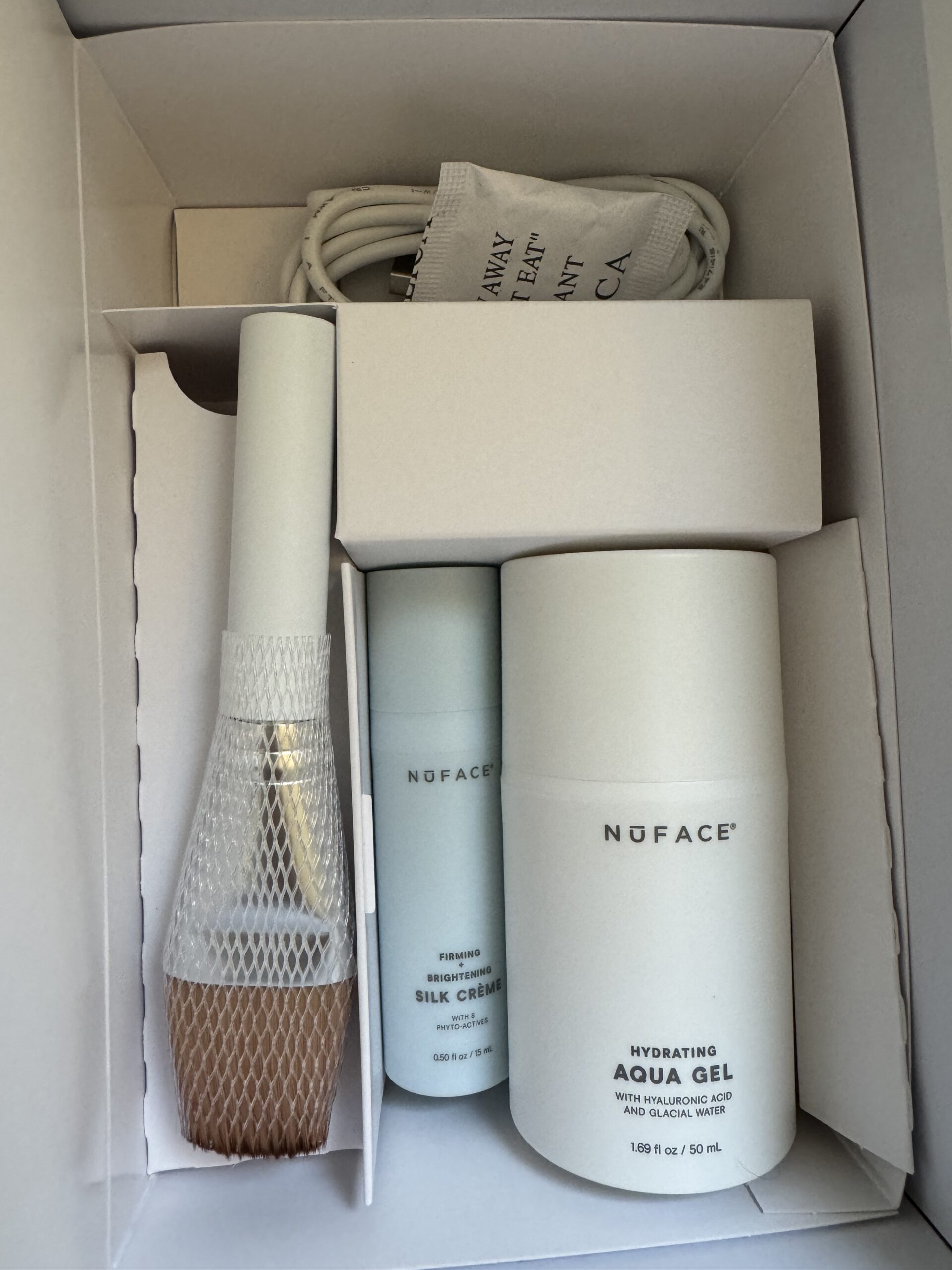

A note about this: NuFACE recommends using their serums for treatments to achieve the best results. They are formulated to work for all skin types and are gentle enough for most users (I read the reviews, and very few people have complained about irritations). That said, these products can be pricey, especially with the upfront investment for the device. From doing some online research, I found these recommended dupes for the activator gel, which I’ll likely try once my bottle runs out. I also appreciate that NuFACE offers a discounted subscription option if you want to stick with only their products.
“NuFACE recommends using their serums for treatments to achieve the best results.”
Now for powering up the device. The instructions were very straightforward: Charge it up, download the app, and prep your skin while you wait — it’s recommended that you have clean and oil-free skin before use. I also took some “before” pictures of my face before beginning any treatments.
For reference, I have normal to dry skin and am in my mid-30s. I have some discoloration from sunspots and medium-sized pores. I don’t have breakouts unless it’s hormonal, and I’m only just starting to notice fine lines forming. For me, the big appeal of the microcurrent facial was firming up skin that is loosening around my neck, jaw, and mouth. Most of this is due to genetics, and our future “turtle necks” are something my sisters and I regularly joke/cry about.
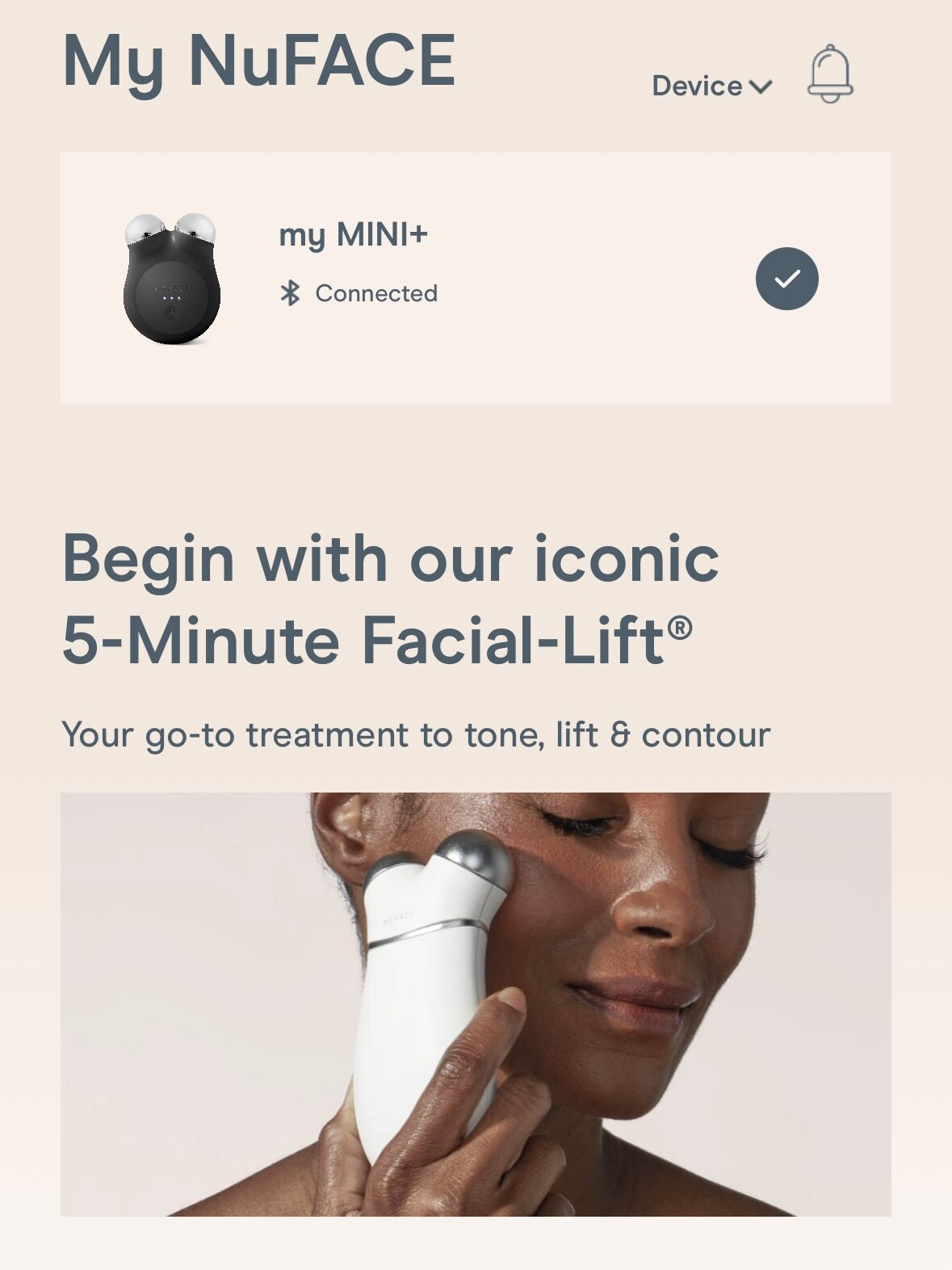

For my first facial, I opted for the five-minute lift that targets the neck, full face, forehead, and cheeks. The app offered step-by-step instructions on where to glide and hold the device minute by minute. The Mini+ has three different power modes (I started in the middle), and I could feel a tiny tingling from the electric current, although it wasn’t ever uncomfortable. The activator helped the device to roll over my skin so smoothly that I wasn’t even sure it was working at first because of how “non-noticeable” the electric currents were. The only moment I felt a bit of discomfort was if my skin had dried out and I needed more gel.
Using the NuFACE Mini+ over 30 days
The main concern I wanted to target while testing the NuFACE device for over 30 days was contouring around my jaw. The Mini+ claims to “Sculpt and firm the face & neck, improve cheek contour, lift brows, and smooth lines anytime, anywhere,” so it seemed the perfect fit for my needs.
What I loved (and still love) most about the NuFACE device is that the app allows you to choose from a library of facials to meet your needs, whether you want a five-minute tightening treatment or a twenty-minute pro toning facial. I quickly discovered my favorite treatments to be the freestyle facials (you just move the device around your face and give yourself a massage!) and the cheek pop facial for targeting my jaw.
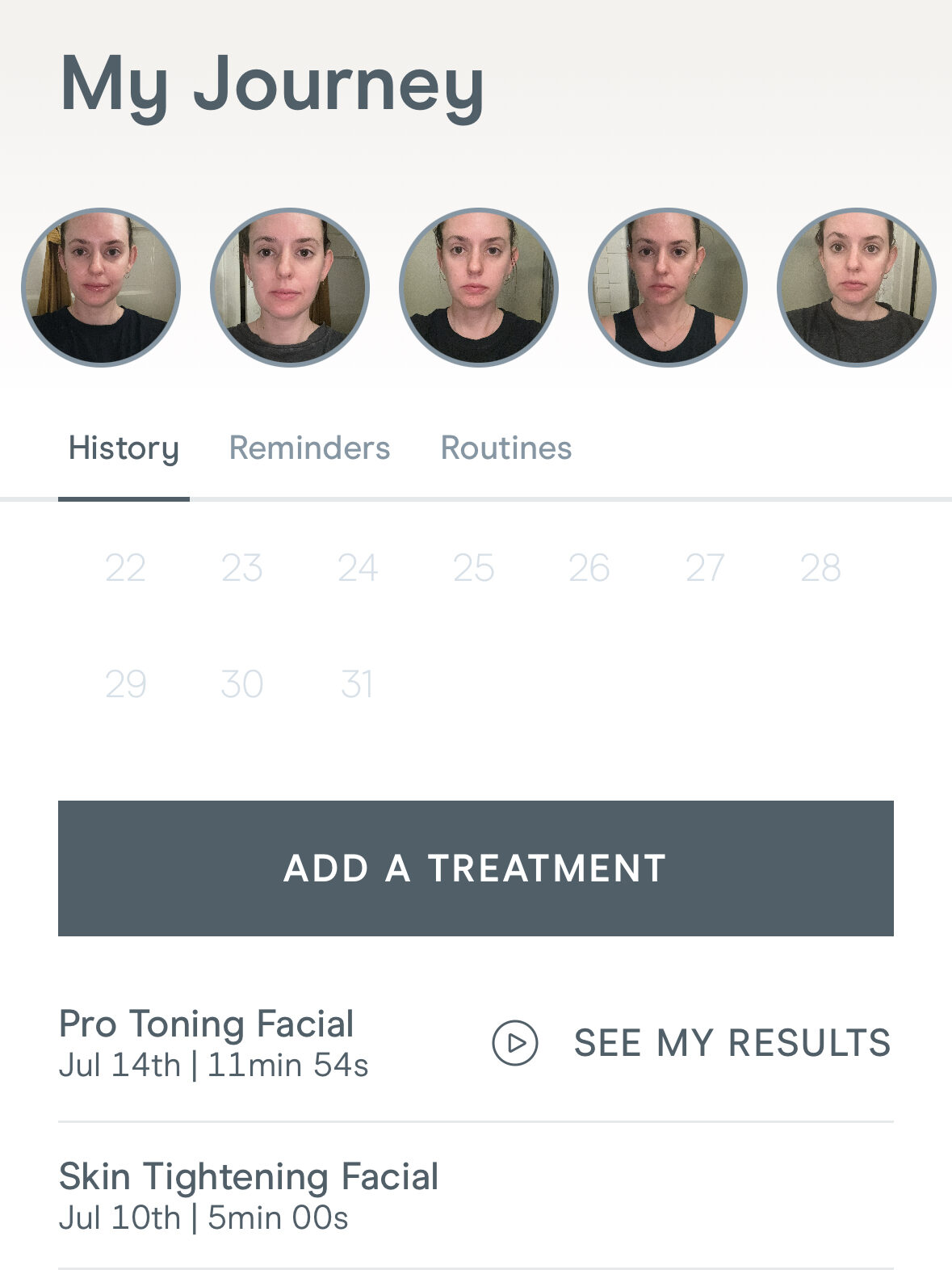
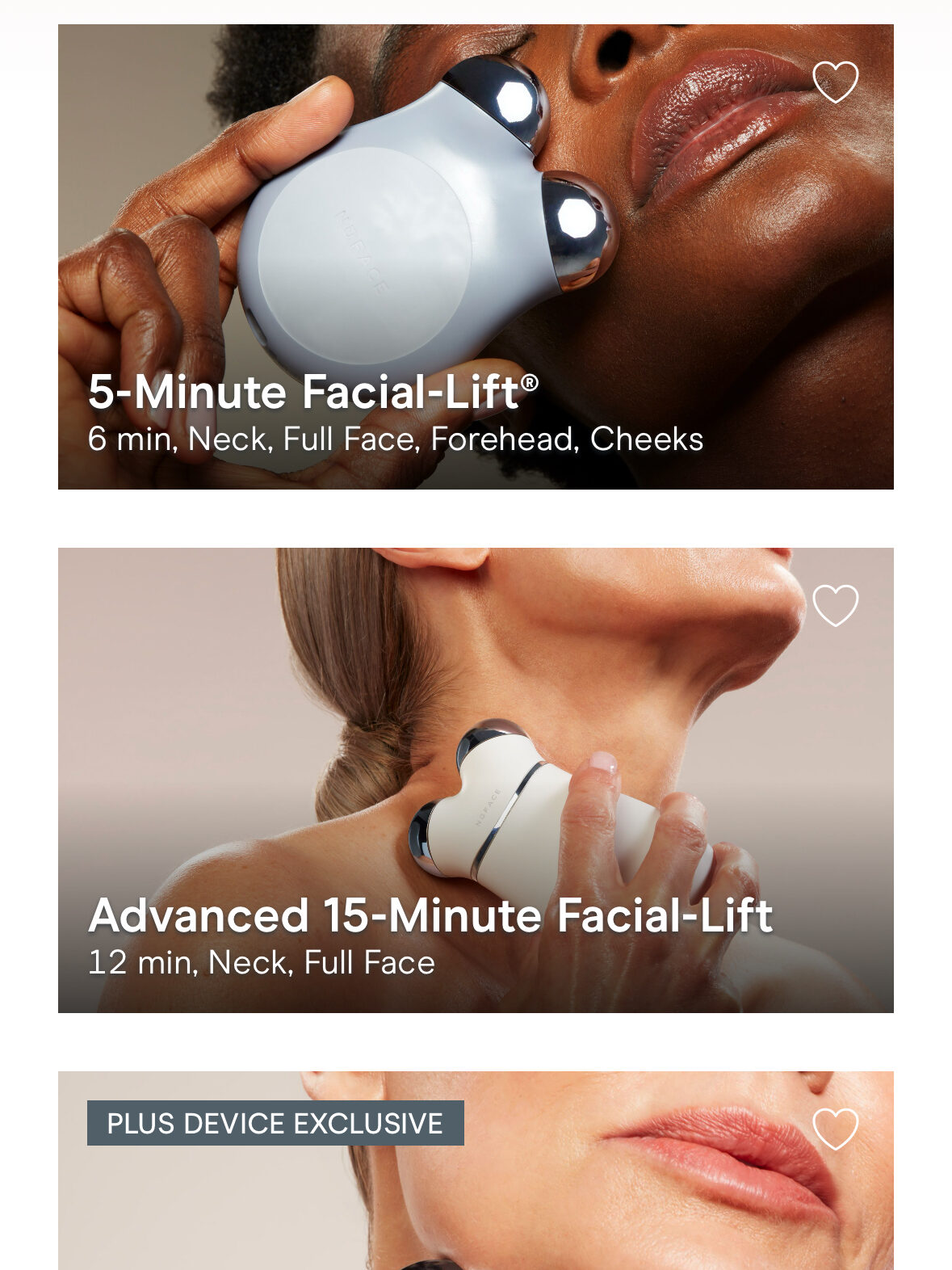
For the 30 days that I tested the Mini+, I used the recommended videos in the app to take before-and-after photos and track my journey. I often chose the five-minute facials for time’s sake, though I tried one of the 12-minute facials during a Sunday reset, and that was a nice treat.
After reading more online reviews, it seems many users like to use the device while watching TV or before bed. I will admit that having to set aside time in the bathroom each night for my facial did feel like a deterrent after a while (no one wants a facial to feel like a chore!), so I like the idea of multitasking and using the device more casually.
NuFACE also recommends staggering treatments — they don’t have to be daily. The brand recommends five to six treatments per week in the beginning and then tapering off to two to three facials for maintenance.
So, does NuFACE work?
The real reason you’re reading this review is that you likely want to know: Does the NuFACE microcurrent device actually work? And the answer is yes, I think so! Thirty days is likely too soon for me to see any noticeable results in my jawline, but I think I’m seeing improvements in elasticity and firmness.
Moreover, using my NuFACE regularly has made me more consistent with my other skincare products and routines, like using retinol a few nights a week and putting on sunscreen in the mornings. It’s helping me create better and more consistent habits, especially as I approach my mid-30s and skincare becomes more important.


I will say that the price tag on this one is a hard pill to swallow. This isn’t a cheap device by any means, and there is a reason I haven’t tried it out until I received the product as a gift. I think the steep price does make it easier to be consistent, though — no one is going to invest that amount of money into a skincare tool only to let it collect dust.
Overall, I think the Mini+ is a great starter tool for microcurrent facials at home, and the payment plan options make it a bit more accessible. Since professional microcurrent facials can run a few hundred dollars per treatment, this will save you money in the long run. The brand also has refurbished options (love this) and regular deals, so watch for those! I know I’ll be watching Labor Day sales and Black Friday deals to restock my NuFACE skincare products.
Kayti Christian is a Senior Content Strategist at The Good Trade. With an MFA in Nonfiction Creative Writing, her work has appeared in TODAY, Shondaland, and The New York Times. Since 2017, Kayti has been uncovering and reviewing the best sustainable home brands and wellness products. Her personal journey through four years of fertility treatments has inspired her to write extensively about women’s healthcare and reproductive access. Beyond her work at The Good Trade, Kayti is the creator of Feelings Not Aside, a Substack newsletter with 6,000 subscribers, and the cohost of the FriedEggs Podcast, which delves into IVF and infertility.

